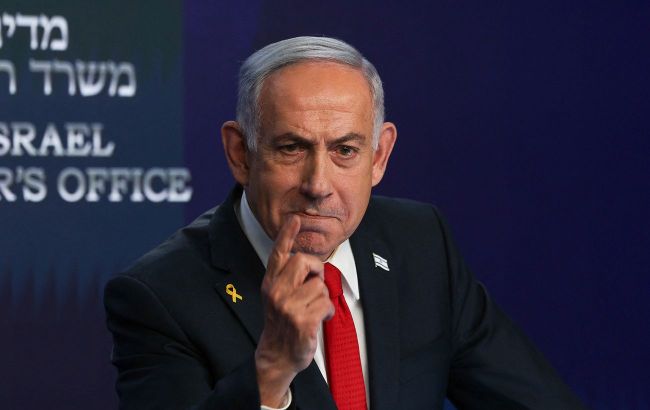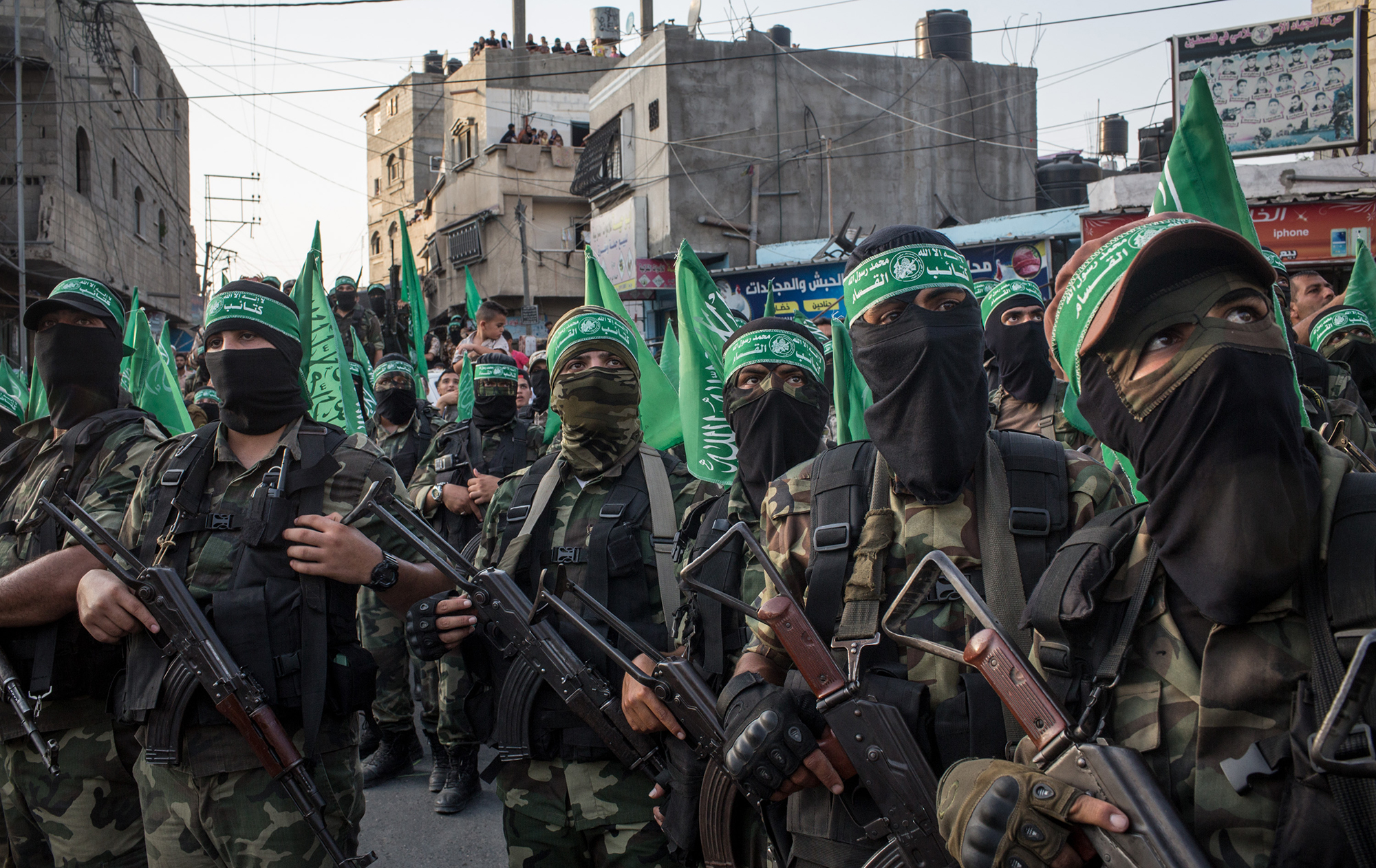Why Western countries started recognizing Palestinian independence and what it means
 Prime Minister of Israel Benjamin Netanyahu (photo: Getty Images)
Prime Minister of Israel Benjamin Netanyahu (photo: Getty Images)
Why the recognition of Palestinian independence became a top topic at the UN General Assembly and what this diplomatic gesture means for Israel and the Middle East – read in the article by RBC-Ukraine journalist Roman Kot.
Key takeaways:
-
Why did Western countries suddenly begin to recognize Palestinian independence?
-
How is Israel reacting?
-
Will recognition of Palestine bring peace to the Middle East?
This year's session of the UN General Assembly promised to be like many previous ones: dozens of leaders from around the world were supposed to come to New York, deliver loud statements, and then return to their countries and routine affairs. But this year is more interesting. Unexpectedly, Palestine has come into the spotlight at the UN.
Literally on the eve of the session, the United Kingdom, Canada, Australia, and Portugal recognized Palestine as an independent state. A similar decision is expected from France, whose president Emmanuel Macron wants to form at the General Assembly a real "diplomatic victory" against Israel and its ally, the United States. In response, Israeli Prime Minister Benjamin Netanyahu called for a "fight," stating that such a step had put the existence of Israel at risk.
The Palestinian problem
The problem of Palestine has lasted for many decades. In 1947, UN Resolution No. 181 provided for the creation of two states in the Middle East – Israel and Palestine. While through a series of conflicts between Israel and its Arab neighbors, the Jewish state was eventually established and able to consolidate itself, Palestinian groups did not achieve their desired outcome and launched a terrorist war against Israel.
This situation persisted throughout the Cold War. In the early 1990s, a reconciliation process began between Israelis and Palestinians. As a result, the Palestinian National Authority emerged. It was created after 1993, when Israel and the Palestine Liberation Organization (PLO) signed the Oslo framework agreement.
According to the land for peace formula, the PLO recognized the state of Israel and renounced terrorism. In return, Israel granted the organization control over parts of the territories in the West Bank and the Gaza Strip. There, the Palestinian National Authority (PNA) was established – a temporary body meant to govern the territories until a final peace agreement with Israel was signed.
The new agreement was never implemented for a number of reasons. In 2000, the sides failed to reach final arrangements due to disagreements over borders, the status of Jerusalem (which both Israel and the PNA claimed as their capital), the right of return for Palestinian refugees, and security guarantees for Israel.
Within both the PNA leadership and the Israeli establishment, there were many opponents of the Oslo Accords, so after the collapse of negotiations, the so-called al-Aqsa Intifada broke out – a low-intensity conflict. It was accompanied by terrorist attacks and riots from the Palestinian population, while Israel responded with harsh security measures. Currently, the process of Palestinian state-building has, in fact, been put on hold. And in the Gaza Strip, active hostilities between the IDF and Hamas militants have been ongoing for two years, triggered by the large-scale terrorist attack on Israel on October 7, 2023.
Motives for recognizing Palestine and its effect
Another wave of recognition of Palestine, despite the resonance, is rather a symbolic step but with political motives, Israeli diplomat and analyst Arkady Mil-Man told RBC-Ukraine.
More than 140 countries in the world have already made this recognition earlier (including Ukraine). In addition, in 2012, the UN General Assembly granted Palestine observer state status. The PNA is also a member of several other international organizations.
"All these decisions are purely symbolic in nature, which, by and large, do not change the situation and do not help the sides resolve this conflict or end this war," Mil-Man noted.
 Hamas militants (photo: Getty Images)
Hamas militants (photo: Getty Images)
Previously, the United Kingdom, France, Australia, and several other countries did not recognize Palestine as a state, stating that its statehood had to be achieved through direct negotiations with Israel. But the position of some of these countries changed due to the worsening humanitarian situation in the Gaza Strip this summer, amid hostilities against Hamas.
In London and Paris, the recognition of Palestine is seen as a way to draw the attention of the international community to the situation in the enclave, as well as to increase pressure on Israel to stop military actions. But this is not the only view in Western politics. For example, opposition parties in the UK – the Conservatives and Reform UK – spoke out against recognizing Palestine. At the same time, Prime Minister Keir Starmer, while announcing the recognition of Palestine, emphasized the inadmissibility of Hamas taking part in its political life, as the group still controls at least part of the Gaza Strip.
Israel's response
In this situation, the Israeli government has several options to consider, taking into account both domestic and foreign political circumstances. Among the proposals are: annexation of the West Bank (Judea and Samaria), expansion of Israeli settlements, and diplomatic measures such as revising the level of relations with certain countries that recognized Palestine.
"The picture is very complex, and today it is at one of the boiling points, from which it is difficult to exit because of the Netanyahu government's policy. In the opinion of more than half of Israel's population, he is continuing the war in the Gaza Strip based on his political considerations, rather than considerations of Israel's national security," Mil-Man told the outlet.
Domestic political factors include Netanyahu's efforts to maintain power by preserving the parliamentary coalition. As the war in Gaza drags on, this is becoming increasingly difficult. In this context, more challenges are arising from both the far-right members of the coalition and the more centrist ones. This situation, in general, is derivative of the current state of Israeli society.
Israel's operation against Hamas has been ongoing since late 2023 and is already one of the longest in Israel's history. During this time, the group has been seriously weakened, but not completely destroyed. In addition, Israel has significantly weakened other forces in the region that posed a threat to it – the Hezbollah group in Lebanon and Iran. All this has a direct impact on Israeli society, albeit a twofold one.
"The war in Gaza is a serious problem that has divided Israeli society today. And this continues. On the other hand, rallying around the flag is happening for other reasons. The main motive concerns security issues. But there are many contradictions there. On the one hand, reservists in the army continue to fight in Gaza. On the other hand, they do not agree that the war continues," Mil-Man told RBC-Ukraine.
Another important factor in the context of Israel's further actions will be the position of the United States. Netanyahu has already announced a meeting with US President Donald Trump. According to Mil-Man, for tough actions, for example, regarding Judea and Samaria, Israel will need US support.
On the other hand, several Gulf Arab monarchies have already stated that in such a case, normalization of relations with Israel within the framework of the so-called Abraham Accords will not occur. This, in turn, contradicts US interests in the region. In addition, in some European capitals, there is already talk of possible trade or sanctions restrictions against Israel in the event of escalation.
However, no diplomatic acts by Western countries can help resolve the fundamental problem – the existence in the region of numerous organizations that, in principle, deny Israel the right to exist, including Hamas. And until this problem is solved, escalation, both military and diplomatic, will continue to grow.

